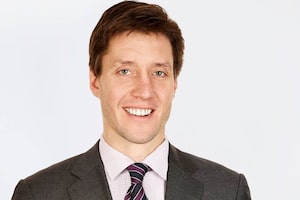A Chevron gas station sign is pictured at one of their retain gas stations in Cardiff, California October 9, 2013.Reuters
Donald Trump has discovered the key to success in America is not just a big personality and hereditary wealth, but limited liability – or the so-called corporate veil.
The legal separation of a corporation and its owners is what allows the Republican front-runner to maintain his "three comma" net worth, even as his companies seem to go bankrupt on a regular basis.
In Canada's highest court, this fundamental legal principle was recently put to the test.
Heading into the Supreme Court's decision in Chevron Corp. v. Yaiguaje – a case mostly about whether Ontario courts had the jurisdiction to enforce an Ecuadorean court's judgment against Chevron – the chatter was that the court may have been ready to weaken the corporate veil. So much so that the Canadian Bar Association intervened owing to a concern that the decision would weaken fundamental principles of corporate law. The intervention was ultimately withdrawn.
Limited liability is perhaps the most fundamental principle of corporate law. Without it, a company's owners, be they individuals or other corporations, would face tremendous personal liability, discouraging risk and making it difficult to aggregate capital. Courts will only "pierce" the corporate veil if a corporation is being used as a mere agent or puppet of its controlling shareholder or parent.
The downside to limited corporate liability is that it creates the potential to avoid liability through a vast corporate shell game where one large enterprise is turned into a collection of smaller, legally distinct entities.
This was the core of the issue in Chevron. Chevron Corp. was accused and convicted by an Ecuadorean court, which found the company responsible for bribery, environmental damage and other nasty stuff, and awarded $9.5-billion (U.S.) in damages to a class of indigenous Ecuadorean plaintiffs.
It makes for a good book and will eventually make for some Brad Pitt Oscar bait (and an angry George Clooney). Thing is, Chevron has no assets in Ecuador, which made the judgment useless unless the creditors (the Ecuadorean plaintiffs) could find a place to realize their claim. The obvious answer was the United States, where most of Chevron's assets are located. Trouble is, in 2014, the U.S. Federal Court found that the decision of the Ecuadorean court was the product of fraud.
Enter Canada. The Ecuadorean plaintiffs turned to Ontario courts. They sued Chevron Corp. and Chevron Canada, claiming that Canadian assets should be available to satisfy the judgment.
This was an imperfect solution – current case law requires that a party have a "real and substantial" connection to Ontario in order to assert jurisdiction. Chevron Corp. has assets but no such connection, only a seventh-level subsidiary, Chevron Canada, with an office in Mississauga. The concern was that the court would use Chevron Canada's economically significant relationship with Chevron Corp. to reject Chevron Canada's distinct legal personality, and that the court would compel Chevron Canada to satisfy the obligations of Chevron Corp. The case highlighted the conflict between Chevron as a single company and Chevron as a collection of independent, but economically linked, entities.
To solve the apparent impasse, the court drew a distinction between enforcing a decision of a foreign court and asserting jurisdiction in the first place. Unlike in an initial action, the enforcement of a foreign judgment doesn't require the court to create new obligations, just to enforce old ones. To have jurisdiction to enforce a foreign judgment, the Canadian court must find that the foreign court validly assumed jurisdiction and that the foreign court had a real and substantial connection to the dispute. At that point, for the Canadian court to assert jurisdiction, all that is required is that the Canadian defendant be properly served.
With respect to Chevron Canada, the question of jurisdiction was even easier. Traditional rules allow the court to avoid the "real and substantial" connection test altogether; physical presence, like Chevron Canada's Mississauga office, is enough. However, the court was explicit in its holding that jurisdiction over Chevron Canada in no way establishes liability for Chevron Corp.'s debts; it merely gives them the opportunity to make that case.
Going into the Supreme Court's decision, many believed that getting a court to assert jurisdiction over Chevron's Byzantine corporate structure would require a rethinking of important corporate fundamentals. Instead, it required a careful distinction, in one case, and an office in Mississauga in the other.
Adrian Myers is a lawyer at Torkin Manes LLP.
 Adrian Myers
Adrian Myers